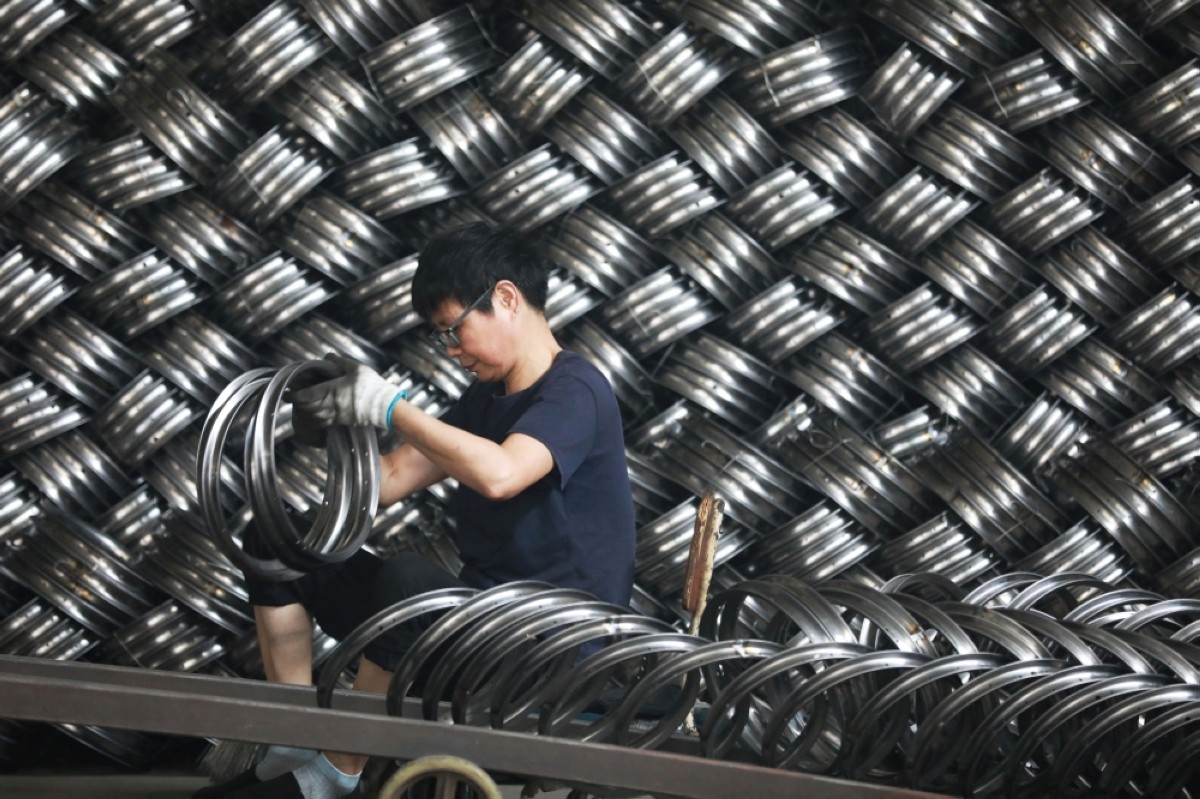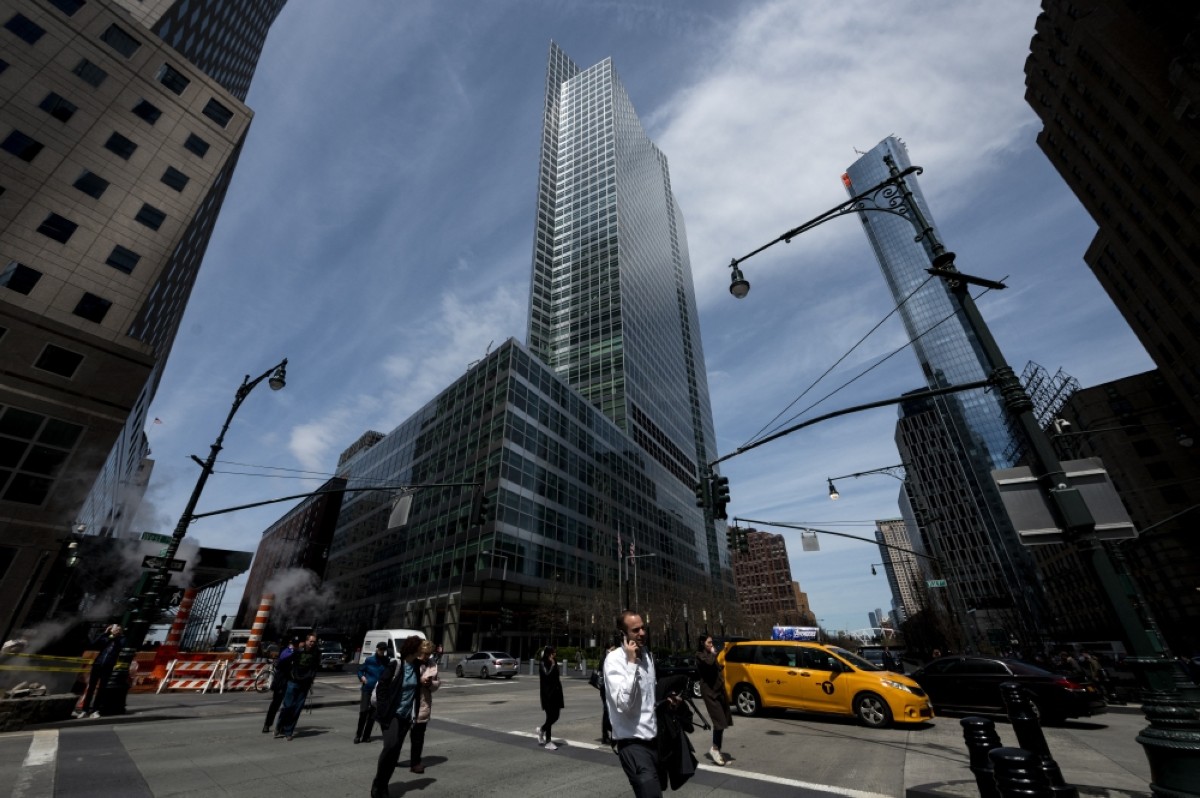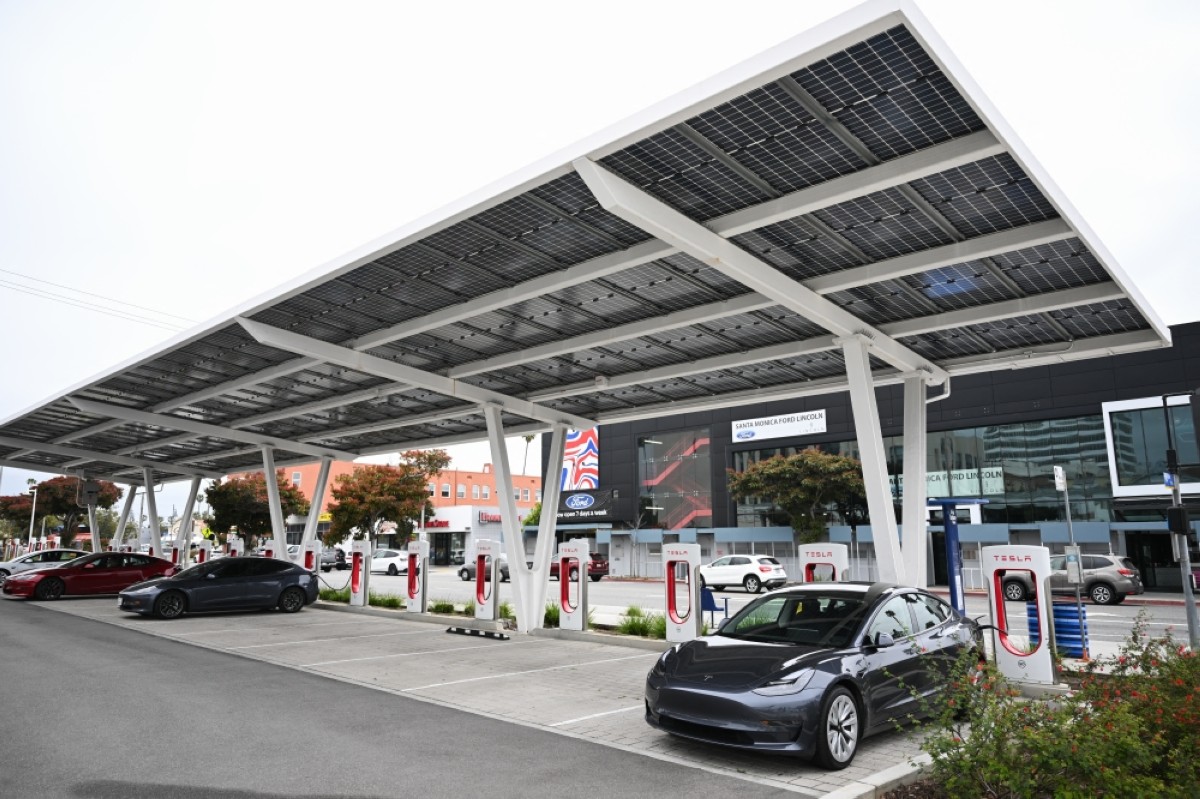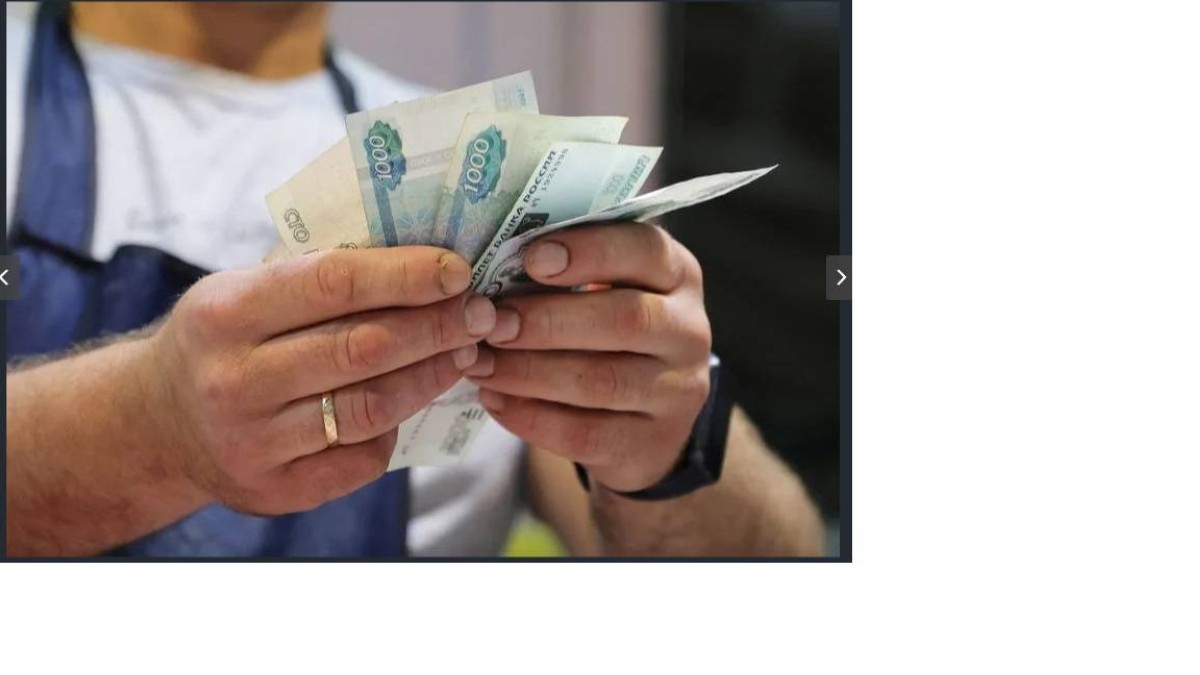China’s economy falters, raises pressure for further stimulus
BEIJING: China’s economy grew much slower than expected in the second quarter as a protracted property downturn and job insecurity knocked the wind out of a fragile recovery, keeping alive expectations Beijing will need to unleash even more stimulus.

HANGZHOU, China: A worker sorts wheels at a factory which produces bicycle parts for export in Hangzhou, in China's eastern Zhejiang province on July 15, 2024. -- AFP.
The world’s second-largest economy grew 4.7 percent in April-June, official data showed, its slowest since the first quarter of 2023 and missing a 5.1 percent forecast in a Reuters poll. It also slowed from the previous quarter’s 5.3 percent expansion. Of particular concern was the consumer sector, with retail sales growth grinding to an 18-month low as deflationary pressures forced businesses to slash prices on everything from cars to food to clothes. “Overall, the disappointing GDP data shows that the road to hitting the 5 percent growth target remains challenging,” said Lynn Song, chief economist for Greater China at ING.
“A negative wealth effect from falling property and stock prices, as well as low wage growth amid various industries’ cost cutting is dragging consumption and causing a pivot from big ticket purchases toward the basic ‘eat, drink and play’ theme consumption,” he added.
Among those under pressure was Swatch Group, the world’s biggest watchmaker, which reported a steep drop in sales and earnings amid weak demand in China. The years-long property crisis deepened in June as new home prices fell at the fastest pace in nine years, battering consumer confidence and constraining debt-laden local governments’ ability to generate fresh funds through land sales.
Analysts expect cutting debt and boosting confidence to be the main focus of a key economic leadership meeting in Beijing this week, although solving one of those problems may make it difficult to fix another. The government is aiming for economic growth of around 5.0 percent for 2024, a target that many analysts believe is ambitious and may require more stimulus.
The sharper-than-expected growth slowdown in the second quarter prompted Goldman Sachs to lower its forecast for China’s 2024 growth to 4.9 percent from 5.0 percent. “To counteract weak domestic demand, we believe more policy easing is necessary through the remainder of this year, especially on the fiscal and housing fronts,” said Goldman Sachs economists, led by Lisheng Wang, in a note on Monday. On a quarterly basis, growth came in at 0.7 percent from a downwardly revised 1.5 percent in the previous three months, the data from the National Bureau of Statistics (NBS) showed.
To counter soft domestic demand and a property crisis, China has boosted infrastructure investment and ploughed funds into high-tech manufacturing. China’s yuan and stocks fell following the disappointing data, but share markets later closed higher as investors bet on more stimulus.
The NBS said while bad weather accounted for some of the hit to growth in the second quarter, the economy faced increasing external uncertainties and domestic difficulties in the second half.
Economic growth in China has been uneven with industrial output outstripping domestic consumption, fanning deflationary risks amid the property downturn and mounting local government debt. While solid Chinese exports have provided some support, rising trade tensions now pose a threat. Broadly reflecting those trends, separate data on Monday showed factory output growth beating expectations in June but still slowing from May.
That follows data released earlier this month that showed China’s exports in June were up 8.6 percent from a year earlier, while imports unexpectedly shrank 2.3 percent, suggesting manufacturers were frontloading orders to get ahead of tariffs from trade partners. The bigger pain point on Monday, however, was seen in retail sales, which rose 2.0 percent year-on-year, missing forecasts and the slowest growth since December 2022.
“Among all the monthly figures released today, the highlight is the weak retail sales,” said Xing Zhaopeng, senior China strategist at ANZ. “Household consumption remains very weak ... with employers slashing salaries and high youth unemployment, households will still be cautious going forward,” Xing added. Property investment fell 10.1 percent in the first half of 2024 from a year earlier, and home sales by floor area declined 19.0 percent.
Bank lending for June released last week showed demand faltering again, with some key gauges hitting record lows. To shore up growth, China’s central bank governor last month pledged to stick to a supportive monetary policy stance. Analysts polled by Reuters expect a 10-basis points cut in China’s one-year loan prime rate as well as a 25-basis points cut in banks’ reserve requirement ratio in the third quarter. Citi analysts expect the government to unleash another round of property-supporting measures after a meeting of the Politburo, a top decision-making body of the ruling Communist Party expected in late July after this week’s Central Committee meeting. Authorities in May allowed local state-owned enterprises to buy unsold completed homes, with the central bank setting up a 300 billion yuan re-lending loan facility for affordable housing.
“While the case for reform is high, it’s unlikely to be a particularly exciting affair,” said Harry Murphy Cruise, economist at Moody’s Analytics. “Big policy pivots can be taken as an admission of failure and a sure-fire way to lose face...assuming reforms are only modest, we expect China to only just scrape through to hitting its ‘around 5 percent’ target for the year,” he added. — Reuters.










